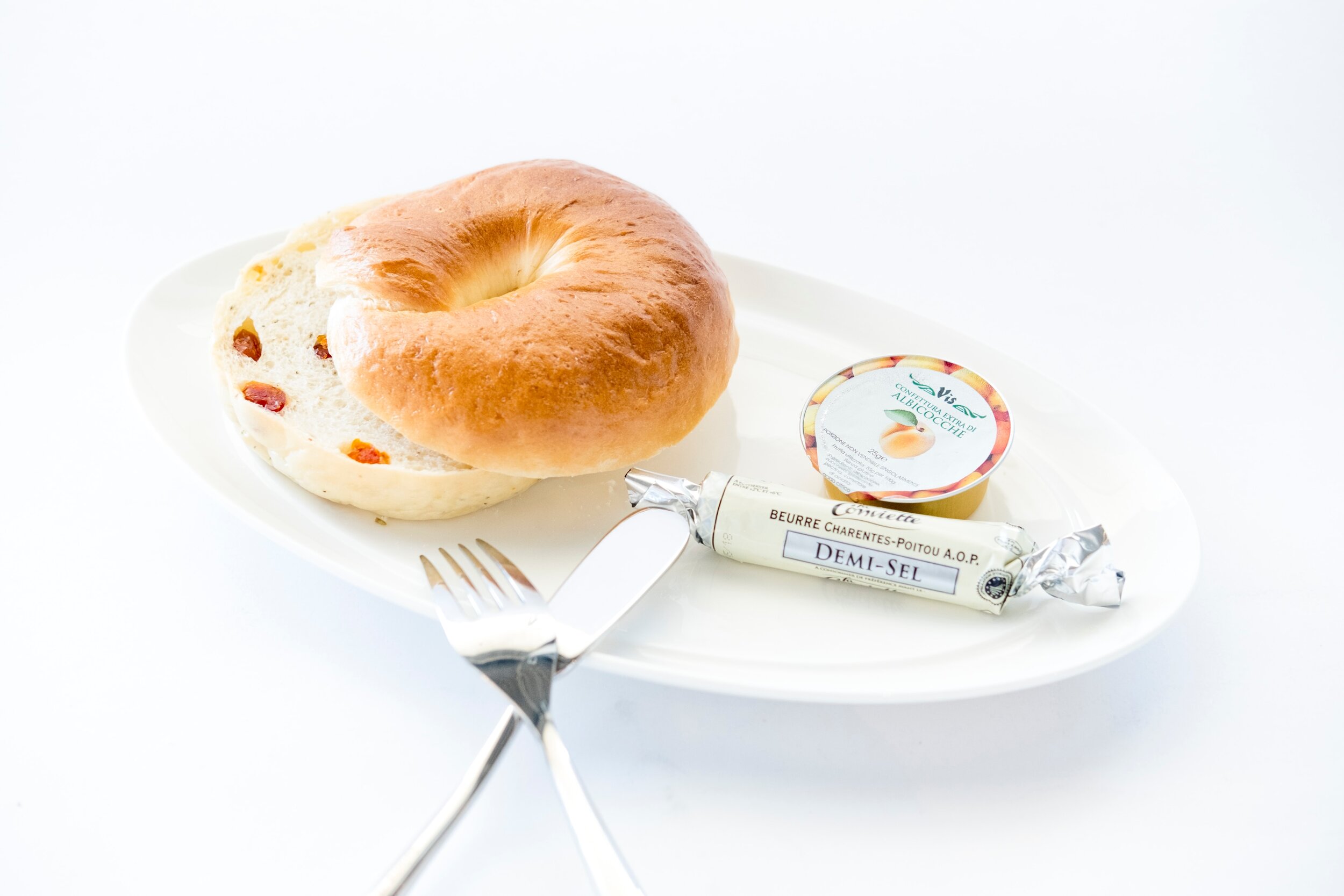The Truth About Eating Carbs At Night
Have you ever been advised that if you wish to lose weight, you should limit carbs at night?
Or maybe just completely stop eating them!
Maybe the reason you haven’t been losing weight all this while is that you were eating rice with your dinner.
That too white rice and not brown rice!!
Okay, let’s just stop right here and get this out of our way.
The reason you gain weight is that you consume more energy than you expend and the opposite is true for why you lose weight.
Does this mean that you can get lean eating carbs at night?
Yeah, it means exactly that!
It might sound hard to believe but it’s the truth.
Take your time and go through this article.
Once you reach the end, make a conclusion for yourself.
Let’s begin with how this myth came up in the first place.
Why Did This Myth Originate In The First Place?
1. Sleeping Metabolic rates are lower than Resting Metabolic rates.
People used this as an excuse saying that your metabolism is slower at night and hence it won’t be able to burn off the carbs you’re eating before going to bed.
Sadly this was debunked by this study, which actually showed that leaner individuals had sleeping metabolic rates which were higher than their resting metabolic rates in cases.
While your metabolism could slow down if you’re obese, it still wouldn’t matter as long as you’re eating in a net calorie deficit at the end of the day!
2. Insulin Sensitivity Isn’t as Good In The Evening
This study showed that a meal in the morning had much better insulin sensitivity when compared to a meal at night.
As usual, this made people jump to a conclusion failing to realize that this could be because of the fact that the meal in the morning is consumed after fasting all night (when you’re asleep).
When the same study compared an afternoon meal (not in a fasted state anymore) to an evening meal, no difference was found in the insulin sensitivity between the two.
Thus, consuming carbs in the afternoon or evening wouldn’t have a difference in this case.
“I Lost Weight Cutting Out Carbs after 7pm”
If the research doesn’t support this, why are there so many success stories with this as the explanation?
Here’s why these people get results and how it actually works.
First and foremost, you have to understand that a gram of carb is a gram of carb at 7am and 7pm.
It’s not magically going to change its caloric value after the clock strikes 7 (or whatever magical time for that matter!).
So how do people actually make this work for them?
It’s simple.
In most cases, people eat up a lot of their calories in the first half of their day!
This means that if they actually had anything after 7, it could put them in a calorie surplus and lead them to gain weight.
By not eating after 7pm, they just limit their calorie intake in a way, and end up staying in a deficit.
Also, the fact that most social events occur in the evening adds to this.
Imagine that you didn’t eat carbs every time you went out in the evening!
Obviously you would reduce your overall calorie intake for the day.
Basically, the reduction in calorie intake is what leads to the fat loss;
Bringing us back to our point that a calorie deficit is what leads to fat loss.
Why Should Anyone Eat Carbs At Night?
Okay so if just not eating carbs could work, why not just do that?
Well, you could.
But you’re going to have to make a ton of sacrifices.
If you’re going for a very short fat loss phase, there’s no harm in this approach.
But if you plan on losing weight for good and then staying lean, this could negatively impact your social life.
Think about it!
Are you willing to stop eating carbs whenever you go out in the evening?
Most people think that they’ll slowly add in a few carbs after they reach their goal.
This slowly bumps up their calories and they end up where they started.
Thus, one of the main reasons for eating carbs at night is to be more flexible with your diet and lifestyle.
Since most social gatherings occur later in the day anyway, saving your carb intake for that time can be a good option.
In fact, it can help you with adherence and it can reduce the chances of you falling off track.
Moreover, there is is just something satisfying about eating a high carb meal right before bed.
Imagine having a toasted bagel with great jam right before bed! (yum)
While the positive impact of a high-carb meal on your sleep is controversial, it sure does feel great psychologically to go to bed eating something delicious.
But How Do I Lose Weight Eating Carbs At Night?
How did the people who didn’t eat carbs at night lose weight?
By creating a calorie deficit!
You can do the same!
Just structure your day in such a way that you consume your carbs in the latter part of the day.
This means you could consume lower carb meals in the first half of the day.
In a way, you’re doing the same thing the people who don’t eat carbs at night do.
You’re not eating carbs for a certain period of the day thus helping you create a calorie deficit.
In fact, why just limit carbs?
If you adopt an Intermittent Fasting approach, you can create a deficit by not eating anything in the first few hours of the day.
This will allow you to save up more calories for later in the day!
Does This Mean That intermittent Fasting Is The Best Approach?
You have to understand that there is no best approach.
The best approach for you will be different from the best approach for me.
Maybe you find it easier to not eat anything in the evening and just get to bed after a tiring day.
In that case, you’re still creating a fasting window in a different way.
But if you have events where you have to go out and eat in the evening several times a week, it could be better if you fast through the morning and save your calories and carbs for later in the day.
Again, it is up to you.
The point is that your goal is to create a calorie deficit.
Doesn’t matter how you create it.
Eat carbs in the morning or night, whatever suits your lifestyle better!
Why Should I Believe You?
Good question.
You should always be skeptical of the advice you receive on the internet.
Not that people are always trying to lie to you, but it is always a good idea to do your own research about the topic as well!
Here’s why I believe that eating carbs at night can work, apart from my own experience.
This research split people into two groups eating the same number of calories, carbs, protein and fats.
The first group ate carbs throughout the day while the second group ate the majority of the carbs at night.
At the end of the study, the group eating the majority of their carbs at night lost more weight and body fat compared to the group eating carbs throughout the day.
While this group (carbs at night) had to deal with hunger initially, over time they ended up feeling more satiety and lesser hunger compared to those eating carbs throughout the day.
Again, this isn’t to show those of you who are on a low-carb diet that this is the only way to get results, but instead to show those of you who struggle to limit carb intake at night to lose weight that it is totally okay (and maybe even better) to eat your carbs at night.
Conclusion
You don’t have to stop eating carbs after a specific time of the day to lose weight.
Stay in a calorie deficit and you will lose weight.
It can’t get any simpler than this!
Now that you know this, are you ready to get ripped while eating carbs following just three simple steps?
Get started HERE!
Liked the content? Please share it with a friend!
Active on Pinterest? Pin the image below!
References
Zhang K, e. (2002). Sleeping metabolic rate in relation to body mass index and body composition. - PubMed - NCBI. [online] Ncbi.nlm.nih.gov. Available at: https://www.ncbi.nlm.nih.gov/pubmed/11896493 [Accessed 16 Nov. 2019].
Biston P, e. (1996). Diurnal variations in cardiovascular function and glucose regulation in normotensive humans. - PubMed - NCBI. [online] Ncbi.nlm.nih.gov. Available at: https://www.ncbi.nlm.nih.gov/pubmed/8901836 [Accessed 16 Nov. 2019].
Sofer S, e. (2011). Greater weight loss and hormonal changes after 6 months diet with carbohydrates eaten mostly at dinner. - PubMed - NCBI. [online] Ncbi.nlm.nih.gov. Available at: https://www.ncbi.nlm.nih.gov/pubmed/21475137 [Accessed 16 Nov. 2019].






